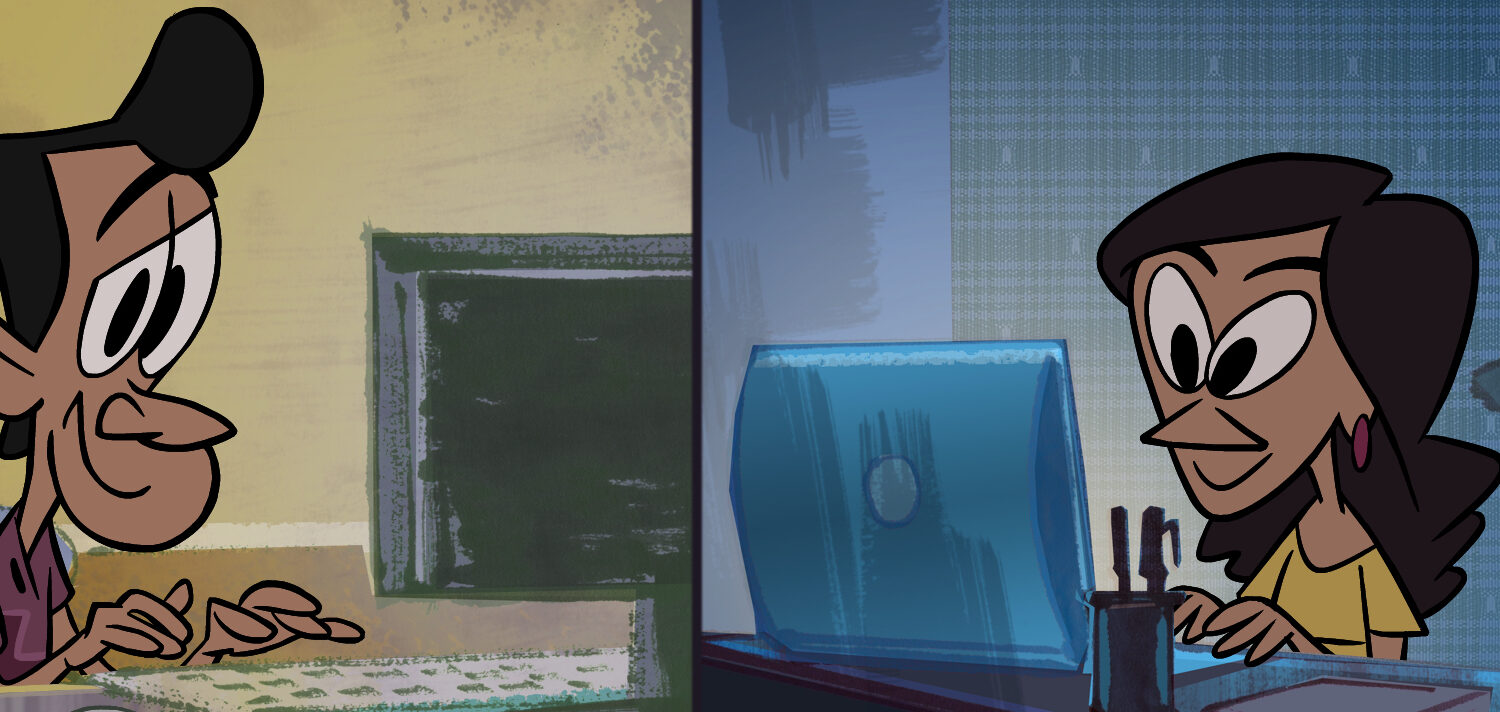National Technology Day celebrates advancements in technology that have, and continue to shape our world. This day gives us a chance to reflect on the lives of those who have made significant contributions to technology, from gaming to healthcare, as well as the more personal journeys that accompany these innovations.
Do you have a memorable encounter with technology that you want to capture? We invite you to engage with inventors, tech pioneers, or individuals impacted by technological breakthroughs through a StoryCorps conversation. You can record in person using the StoryCorps App, or remotely using StoryCorps Connect.
Here are 5 stories that offer a peek into the experiences and determination of those at the forefront of technological innovation:
“Some of my earliest memories are of us playing his video games.”
Engineer, Gerald Lawson, went from tinkering with TV parts as a young teen to helping lead the team that created the first ever home video game system that used interchangeable game cartridges. This invention, a cornerstone in technology, led to a multi-billion dollar industry. Lawson’s innovative spirit extended to his parenting, raising his children amidst cutting-edge technology during the 1970s in Silicon Valley. They came to StoryCorps to reflect on their unforgettable childhood and their father’s colossal personality.
“YOU GAVE UP YOUR LIFE TO GIVE ME A LIFE. “
Sean Carter was a college student putting himself through school in Wichita Falls, Texas, when he was in a serious car accident. He was riding with a friend who had been drinking, and sustained a traumatic brain injury in the crash. Today, Sean is unable to walk and speaks only with the aid of a computer. At StoryCorps he interviewed his mother, Jenny Carter, who is his full-time caretaker.
“My nickname is the Human Computer.”
New York City cab driver Oleg Roitman, whose nickname is “The Human Computer,” because if someone tells him a date in Russian, Hebrew, or English he can instantly tell them on which day of the week they were born, talks with fellow taxi driver Andrew Vollo about entertaining passengers.
“We met through a computer dating service back in 1964.”
In their early days, most computers were used for mathematical work, but a few were also used to help people find love. John and Carol Matlock met in what was a precursor to online dating—computer dating—where potential partners filled out a questionnaire and then mailed it in.Then, a person would create a punch card out of their answers and feed it through a giant computer that would spit out a few perfect matches. In just weeks (or sometimes months), that information would then arrive back in their mailbox.
“It opened up for me like a gift. And I’m like, ‘I’m in this lab killing cancer.’”
Today, Dr. Green has successfully developed technology that has killed cancer in laboratory mice, without the use of chemotherapy and radiation, and without any observable side effects. Her work is in the process of moving forward into human trials. Dr. Green is an Assistant Professor at Morehouse School of Medicine. She also founded the Ora Lee Smith Cancer Research Foundation in honor of her late aunt.
Want even more stories about technology? Explore our archive for StoryCorps voices from across the United States and around the world!

